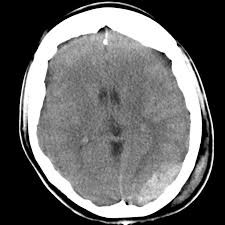January 31, 2015 - When patients present to the emergency department (ED) with syncope or dizziness it has become standard procedure for p to undergo a head CT. However, how many patients presenting with syncope actually benefit from the CT head examination?
A recent study found <7.1% of patients presenting to the ED with dizziness and 6.4% complaining of syncope or near-syncope benefited from head CT. Yet head CT is increasingly used in the ED as part of a screening exam rather than as a diagnostic tool. There is speculation that while head CT may be useful in differentiating between benign and life-threatening causes, it use may also serve as a way for ED physicians to avoid liability.
In a retrospective study, the authors set out to determine the yield of acutely abnormal findings on head CT scans in patients presenting to the ED with dizziness, near-syncope, or syncope and to determine the clinical factors that potentially predicted acutely abnormal head CT findings and hospital admission.

Head CT of a 48-year-old man who presented at the ED following a syncopal episode. Source: http://lifeinthefastlane.com/tag/ct-head/
They reviewed the electronic medical records of all patients presenting to an HMO emergency department between July 1, 2012, and December 31, 2012, who underwent head CT for a primary complaint of dizziness, syncope, or near-syncope. The primary outcomes were head CT scans with acutely abnormal findings and hospital admission.
The findings showed that of the 253 patients who presented with dizziness, 7.1% had head CT scans with acutely abnormal findings, and 18.6% were admitted. Of the 236 patients who presented with syncope or near-syncope, 6.4% had head CT scans with acutely abnormal findings, and 39.8% were admitted.
The authors concluded that most patients presenting with syncope or dizziness to the emergency department may not benefit from head CT unless they are older, have a focal neurologic deficit, or have a history of recent head trauma.
Source: Mistunaga MM, Yoon HC. Head CT Scans in the Emergency Department for Syncope and Dizziness. AJR Am J Roentgenol. 2015 Jan;204(1):24-8. doi: 10.2214/AJR.14.12993.




